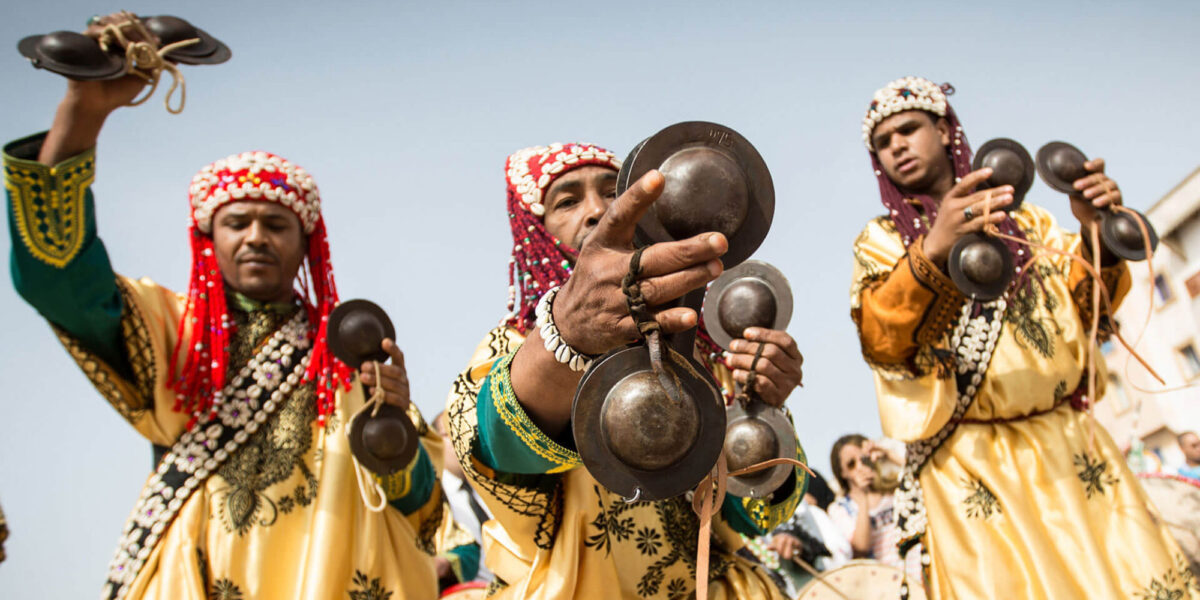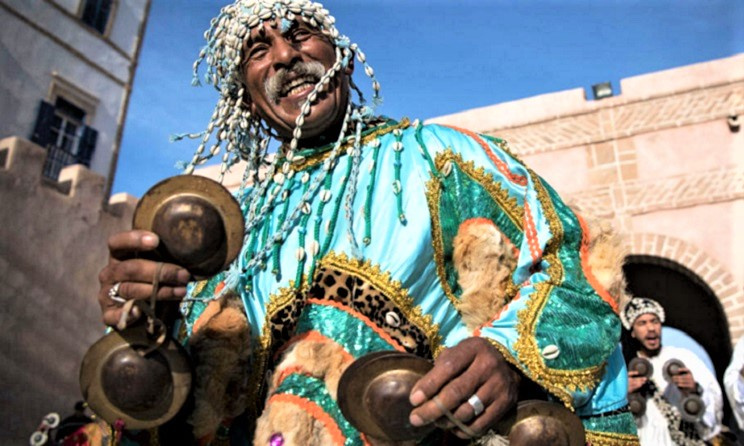A Fusion of Rhythms and Cultures
When you think of Brazil, rhythms like Samba, Bossa Nova, and Forró might come to mind, while Morocco evokes images of Gnawa, Chaâbi, and Andalusian music. However, a closer look at musical parallels between Brazil and Morocco reveals fascinating similarities. These two countries, despite their geographical distance, share rich musical traditions rooted in African rhythms, cultural exchange, and a deep connection to the soul of their people.
Samba and Gnawa: Rhythms That Move the Soul

Samba is the heart of Brazilian music, a rhythm rooted in African traditions, blending indigenous and European influences. Its syncopated beats and energetic pace embody the spirit of Brazil’s diverse culture. On the other side of the Atlantic, Gnawa music is a spiritual and hypnotic genre that has its roots in sub-Saharan Africa. The repetitive rhythms, call-and-response patterns, and deep connection to trance-like states draw a striking parallel with Samba.
Both styles were influenced by African enslaved peoples, whose musical traditions and instruments were integral to the cultural identities of these regions. While Samba evolved in Brazil, particularly in the streets of Rio de Janeiro, Gnawa music became an essential part of Moroccan rituals, often associated with healing and spiritual practices.
Instruments: From Berimbau to Gimbri
The instruments used in both styles are also worth exploring. In Brazil, the Berimbau is a key instrument in Samba and Capoeira, a martial art that blends dance and music. The Berimbau’s sound shares similarities with the Gimbri, a traditional Moroccan instrument used in Gnawa music. Both instruments have a deep, resonant tone and are central to the rhythm of their respective music genres.
The Cavaquinho in Brazil and the Sintir in Morocco also share similar melodic structures, often used to accompany the main rhythm of the music. The blending of stringed instruments and percussion creates a rich, layered soundscape that resonates with listeners across cultures.
Dance and Ritual: The Power of Movement

Dance is another aspect where Brazilian and Moroccan music meet. In Samba, the movement is energetic, joyful, and an essential part of the performance. Gnawa, on the other hand, often involves a more meditative and trance-like dance, where the dancers enter a state of spiritual connection through rhythmic movement.
Both traditions view music and dance as vital components of the spiritual experience. In Brazil, the Carnival celebrates Samba as a form of cultural expression and identity. Similarly, in Morocco, Gnawa rituals often involve music and dance as part of a healing or spiritual experience, where the rhythms facilitate a connection to the divine.
The African Influence: A Shared History

One of the most significant parallels between Brazil and Morocco is the African influence on both countries’ musical traditions. Brazil’s music was heavily shaped by African slaves, who brought their rhythms and instruments to the New World. Similarly, Morocco’s musical heritage, particularly Gnawa music, has strong African roots, stemming from the country’s historical connections to sub-Saharan Africa.
Both countries’ music serves as a reminder of the African diaspora and the enduring influence of African culture on the world. This connection is not just historical but is continuously reflected in the vibrant and evolving music scenes of both Brazil and Morocco.
Conclusion: A Bridge Between Two Worlds
The musical parallels between Brazil and Morocco are not just a fascinating cultural discovery but also a testament to the global impact of African music. Whether it’s the lively rhythms of Samba or the spiritual beats of Gnawa, both genres invite us to move, connect, and experience the world through sound.
As we continue to explore and appreciate these traditions, we come to understand that music, at its core, is a universal language that transcends borders. From the streets of Rio to the festivals of Marrakech, Brazilian and Moroccan music remind us that rhythm and culture are powerful forces that unite us all.
0






